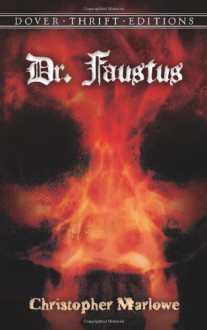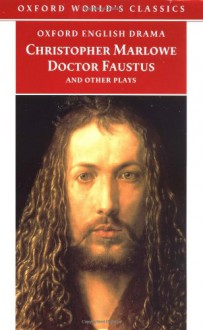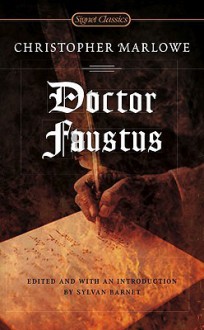
 “Hell is just a frame of mind”
“Hell is just a frame of mind” When you finish reading Doctor Faustus, you become extremely confused and you keep asking yourself a crucial philosophical question: Are we born good or evil? And that leads you to another question: What is the purpose of existence? Then, you find yourself obligated to answer an overwhelming question: Do we understand God correctly?

When we go back in time to Adam and Eve, we know that their first sin, which resulted in their banishment from Heaven, was the hunger for forbidden knowledge. Faustus committed that very same sin. He made a deal with Lucifer and ate voraciously from the tree of knowledge. However, we should ask ourselves: What is
forbidden knowledge?
I believe that forbidden knowledge is that kind of knowledge that makes us feel superior to others. The knowledge that inspires us to treat people as if we were gods, and they are our slaves. Francis Bacon once wrote: “Knowledge is power” and I think it is clear that craving for power was the one and only motivator for Faustus's handing his soul over to the devil. But here's the rub: in order to gain that power, Faustus has to give it all away—to Lucifer. Ultimately, the power Faustus dreamt of could never be his. That is what Faustus didn’t understand. That is the reason behind Faustus’s suffering all through the play.
The everlasting struggle between good and evil in Doctor Faustus clearly represents the fact of the human vulnerability. The idea of Good and Bad Angels in Doctor Faustus indicates that we all are both good and evil. the Good angel represents Faustus's desire to repent, and the Bad Angel, his desire to keep right on sinning. Unfortunately, this fierce battle between good and evil within all of us will never end, and this woeful fact is reflected in life itself.

Through all of Faustus’s travels, Faustus just could not escape the subject of religion. Yet while religion follows him, step-by-step on his slow journey to eternal damnation, we cannot help but think that Faustus never gets how important religion really is in his life, or the role it will eventually play in the fate of his soul. Nevertheless, I think that Faustus’s religious indifference is partly justifiable.
When we study history, we understand how cruel and pitiless the church was. Christianity in the 17th century showed deep conflict. The Age of Enlightenment grew to challenge Christianity as a whole, generally elevated human reason above divine revelation. This conflict is highly reflected in Doctor Faustus, and it took so many forms.
The most frequent form of conflict with religion represented in Doctor Faustus was Faustus’s desperation of God’s forgiveness. I believe that religious institutions were highly responsible for this. They encouraged people’s desperation by being so selfish and power thirsty and by portraying God, not as a merciful and loving God, but as a vengeful and blood thirsty God. I think that this particular kind of conflict is a recurring pattern that exists in all religions: a grandeur idea with loathsome and revolting interpretations.

We are vulnerable, weak, and pathetic human beings, we commit sins and we have a deep and hidden passion for the forbidden. In my opinion, we should not damn Faustus because of what he did. Nevertheless, we should read Faustus as if we were reading ourselves. That is the beauty and the importance of literature, it confronts us with our real selves and it gives us the opportunity to experience the consequences of our parallel-selves’ mistakes and to learn from them.
In Act IV Scene V, When Faustus said: “What art thou Faustus, but a man condemned to die?” he was not actually talking to himself; rather he was talking to us – readers. We were born, we live, and eventually we will die. Therefore, we should listen to Faustus and learn from him instead of cursing him.
I believe that Faustus's fall has been caused by his choice to believe that he's damned. That causes him to refuse to repent, and refusing to repent is the one sin that's truly unforgiveable.
Even though there are many reasons for every one of us, just like Faustus, to lose his faith and his confidence in God, but there is still a small and powerful light inside of every one of us mysteriously leading us to the right path. Faustus did not lose that light, but his tragedy was that he was not courageous enough to support that small weak light in order to overcome the huge darkness inside of him.

If you think about it, the thing that tempts someone to sin is different for every person. For Faustus it was knowledge, but for some people, it might be money, or a special social position, or even something as trivial as food craving!
Therefore, the lesson to be learned from Faustus's fall turns out to be bigger than just a warning against forbidden knowledge.
I highly recommend this play :)


 Log in with Facebook
Log in with Facebook 













